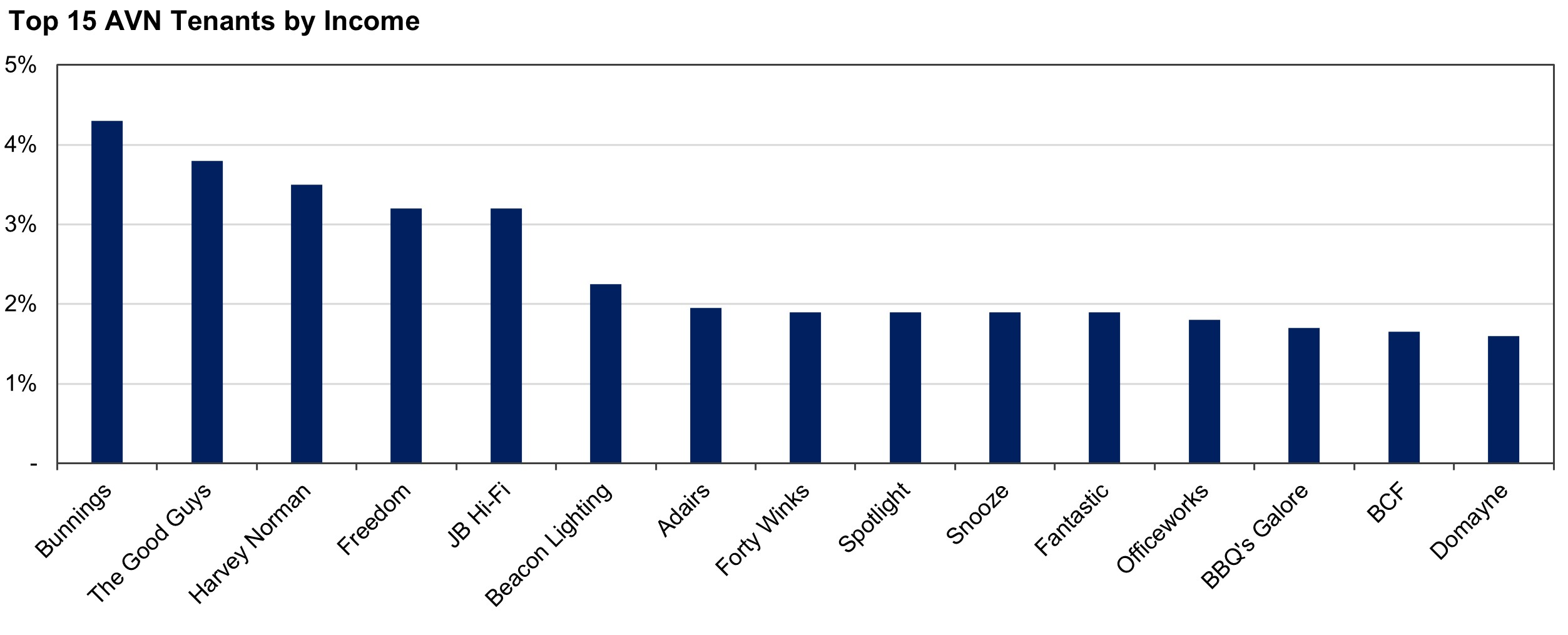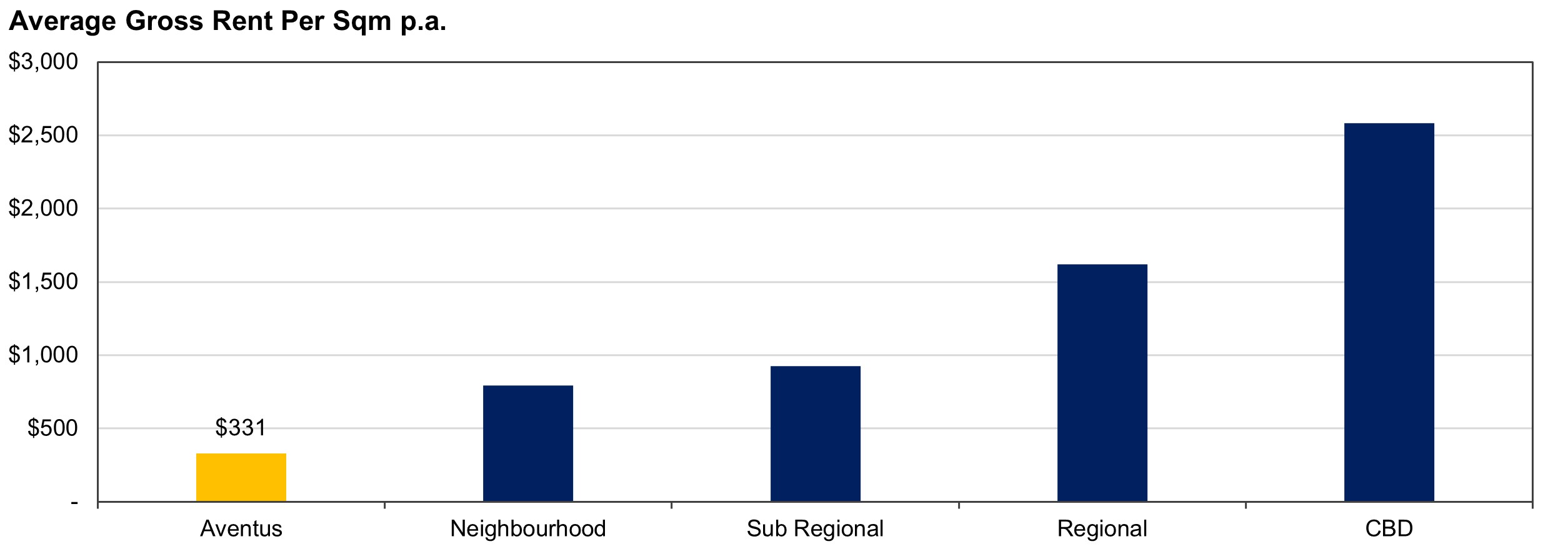Our 6 best ideas in a sector yielding opportunities
Rent – it’s an essential cost for most businesses and a highly recurring, low risk revenue stream. This is the key revenue stream for real estate investment trusts (REITs), a sector which has been and continues to be attractive to us at Auscap. In this wire, we focus on our 6 best ideas in the space which have the following characteristics:
- Have hard to replicate assets;
- Are relatively simple to understand; and
- Our expectation that they will have strong and growing cash flows over time.
We can classify these 6 REITs into three buckets: attractive yield plays, special situations and fund managers.
Disclaimer: Our views on investments discussed below are based on factual information available to us at the date of publication. Our views and market conditions as expressed below may change. There is a risk that the investments will not perform as expected, which could have an adverse impact on the Auscap Fund. The below information is not general advice, personal advice or a recommendation to be relied upon when making an investment or other decision.
Attractive yield plays
Aventus Group (AVN)
Aventus Group (Aventus) owns a diversified portfolio of 19 high quality large format retail (LFR) centres which represent 22% of the Australian large format retail sector (defined as LFR centres with >25,000 sqm of Gross Lettable Area (GLA)). 74% of the portfolio is in metro catchments and three quarters of centres are external assets which allow for better social distancing. 37% of tenants serve everyday needs categories, including Coles, Officeworks, Chemist Warehouse, Supercheap Auto and Dan Murphy’s, whilst the balance of tenants sell products relating to the home, including The Good Guys, JB Hi-Fi, Bunnings, Harvey Norman & Nick Scali. 88% of tenants are national retailers, with no tenant representing more than 5% of income.

Source: Aventus, Auscap
All Aventus leases include annual rent escalations, 77% of which are fixed at a weighted average rate of 3.8%, with the balance being CPI linked. Crucially, Aventus charges an average gross rent of just $331 per sqm, materially lower than the other large scale retail destinations that a leading national retailer might consider. This low comparative rent has allowed Aventus to maintain consistently high occupancy, currently 98.5%, whilst also providing a long runway of rental growth. Bulky home products are especially reliant on stores, given they are notoriously difficult to sell online, providing resilience to the e-ecommerce threat. We expect stores to remain highly relevant for omni-channel retailers given the large proportion of sales likely to remain in-store, the branding benefits of stores, the cost advantages of fulfilling online orders from stores and the margin accretion of click & collect orders.

Source: JLL Research, Aventus, Auscap
In addition to a strong underlying financial profile, Aventus offers significant optionality. Across its 1.2 million sqm land bank, only 44% is currently covered by retail sites. Aventus has identified development opportunities at 88% of its assets, with 39% of the portfolio currently having zoning for other uses. Aventus has achieved an average return on capital of 9% on developments since IPO. Aventus has also identified incremental income opportunities in solar panels, ticketless parking and signage. In addition, Aventus has a nascent funds management platform which can be further leveraged to expand Aventus’ presence into smaller bulky goods retail centres or to lower Aventus’ cost of capital for future acquisitions. Aventus has room to grow with its balance sheet currently below management’s target gearing range of 30-40%, providing firepower for accretive acquisitions.
Aventus’ longstanding CEO Darren Holland began building Aventus with Brett Blundy in 2004 following a career involving homemaker centres starting in 1992. Following a 2018 internalisation, management’s incentives are strongly aligned with shareholders. After accounting for a recent upward revaluation, we estimate Aventus is trading approximately 15% above its net tangible asset value and at a mid-single digit premium to its net asset value, which includes the capitalised value of the Aventus management rights following the internalisation. Aventus has a forecast FY22 distribution yield of 5.8%, which we believe should grow sustainably at 3% plus per annum. For an asset with much lower risk than the broader market, we think this provides investors with an attractive total return before allowing for upside from redevelopment opportunities, acquisitions, balance sheet optimisation or potential future income streams.
Charter Hall Retail REIT (CQR)
Charter Hall Retail REIT owns $3.5bn of “convenience retail” locations across Australia. Its portfolio consists largely of:
- 27 “Convenience” assets: Assets with a single supermarket and some complementary specialty offerings;
- 24 “Convenience Plus” assets: Assets with multiple supermarkets, or a supermarket and a discount department store, with some complementary convenience specialty and retail offerings;
- A share of Charter Hall’s 49% interest in 270 BP service stations (the other 51% retained by BP), representing the majority of BP’s owned assets across Australia and New Zealand. These are multi-decade leases with annual CPI rent increases. Leases are triple-net-leases, meaning BP retains responsibility for all repairs, outgoings, site remediation, maintenance and capital expenditure on the sites; and
- A 52% holding in Coles’ Adelaide Distribution Centre on a 14.5 year lease with fixed annual rent increases of 2.75%.
54% of CQR’s rent comes from Coles, Woolworths, BP and Wesfarmers (Kmart, Target, Bunnings & Officeworks). 65% of supermarket leases currently pay turnover rent, meaning CQR benefits from the sales growth of these tenants. Occupancy across the portfolio is 97.8% with positive leasing spreads of 2.5% as at the latest update.

Source: CQR, Auscap
As at 15 July 2021, CQR was trading at $3.69 relative to Net Tangible Assets of $4.02, with a forecast FY22 dividend yield of 7.0% that we expect will grow at a reasonable rate over time. At current prices, we view CQR as a simple, low risk and attractive yield and growth proposition.
Special situations
Some of the Auscap Fund’s real estate holdings fall into the “special situations” bucket. These vehicles own high quality portfolios, which are currently trading at a discount to the independent value of their assets and have highly aligned management teams who have clear plans to close the discounts to fair value. Two holdings within this bucket are Unibail-Rodamco-Westfield and GDI Property Group.
Unibail-Rodamco-Westfield (URW)
Unibail-Rodamco-Westfield (URW), formed via the 2017 merger of Unibail-Rodamco and Westfield, is the owner and developer of the world’s premier portfolio of flagship retail assets. It has a €56bn portfolio of 87 shopping centres, located across Europe and North America. URW owns 19 of Europe’s top 30 retail assets by footfall.
Its assets include, among many others:
- Westfield London, the largest shopping centre by size in Europe;
- Les 4 Temps, the largest shopping centre by footfall in continental Europe;
- Westfield Stratford City, the largest shopping centre by footfall in the UK;
- La Maquinista, the largest shopping centre in Catalonia;
- Shopping City Sud, the largest shopping centre in Austria;
- Westfield Mall of Netherlands, the largest shopping destination in the Netherlands;
- Westfield Valley Fair, the largest mall by revenue in California;
- Westfield World Trade Centre in New York; and
- 5 retail airport operations, including Los Angeles, John F Kennedy and Miami airports.
URW boasts a premium collection of assets which would be near-impossible to replicate, but these assets were unfortunately hit extremely hard by COVID-19 and the associated movement restrictions. Significant tenant relief was required, vacancies increased from 5.4% to 8.3% over the course of 2020, leasing negotiations were delayed and incremental convention centre income disappeared, down 92.3% on 2019. URW’s assets were subsequently revalued downwards 11.3% over 2020 leading to somewhat elevated gearing with a 44.7% loan to value ratio against a target of 30-40%. The URW share price is down over 40% from €126.95 in February 2020 to €72.93 as of 14 July 2021, less than half URW’s net asset value of €166.80.
In the face of an incredibly challenging scenario, current URW management have acted prudently. Actions include:
- Raising debt and extending URW’s debt maturities, ensuring no near-term liquidity concerns;
- Announcing a plan to divest assets opportunistically over the coming years, including €4bn of disposals in Europe and material US disposals. Over FY20, €2.3bn of assets were sold at an average premium to book value of 0.3%;
- Pausing the URW dividend until the end of FY22 and reducing capex to preserve cash;
- Ruling out the prospect of a highly dilutive equity raise; and
- Replacing the management team responsible for the unsuccessful Westfield merger, whilst adding experienced executives to the Board. New leadership includes Chairman Leon Bressler, former URW CEO between 1992 and 2006, and Board Member Xavier Niel, a French billionaire technology entrepreneur and founder of Illiad.
Xavier Niel and Leon Bressler’s firm Aermont Capital have purchased approximately 20% of URW shares on market, with Xavier Niel indicating to regulators in March 2021 that he intends to continue to purchase shares. Xavier Niel has spent over €900m purchasing URW shares since joining the Board in November 2020, a clear indication of the value he sees given the share price.
Over 2020, Europe and
the United States were amongst the worst affected regions by COVID-19. But the
governments within these regions have responded with aggressive vaccine rollout
plans that lead the world. As investor focus begins to shift to a post-COVID
world, we see tremendous opportunity for URW to close its steep discount to
NTA. URW owns a very high-quality portfolio, has not raised equity, has very
aligned and capable leadership and is trading at below half the independent
value of its assets. We view URW as an exciting global economy reopening trade
as vaccination rates improve across Europe and the United States and lockdown
conditions are eased.

Source: Our World In Data as at 30 June 2021, Auscap
GDI Property Group (GDI)
GDI is a fully integrated, internally managed property and funds management group with capabilities in ownership, management, refurbishment, leasing and syndication of properties. GDI’s Managing Director Steve Gillard is a substantial GDI shareholder, holding just over 5% of shares on issue. GDI has a significant exposure to Perth core CBD office assets and its single largest tenant exposure is the West Australian Government. GDI has a track record of acquiring assets counter-cyclically, with most of its major assets acquired below replacement cost or at land value.
GDI’s latest Net Tangible Assets (NTA) is $1.27 per share, against a share price of $1.10 as at 15 July 2021. The vast majority of this NTA is comprised of:
- Mill Green Office Complex (197 St Georges Terrace, 1 Mill Street and 5 Mill Street) in Perth ($326m)
- Westralia Square (141 St Georges Terrace) in Perth ($345m)
- 47% of a portfolio of 17 Perth Car Dealerships, 100% occupied on long-term leases ($106m)
- 50 Cavill Avenue in Surfers Paradise ($101m – Held for sale)
GDI has identified many opportunities to materially increase the value of its NTA. These include the dramatic DA approved redevelopment of 1 Mill Street (artist’s impression below left, currently a 3 level building with plans to develop 45,000sqm of office space) and the low-cost expansion of Westralia Square (“WS2” – artist’s impression below right, currently vacant land). They are also continuing to re-develop and lease the other assets, with current occupancy ranging from 63% to 91%, and expand their funds management operations.
We are admittedly cautious towards most Australian office markets, given the ongoing impact of COVID-19 on CBDs. The Perth office market continues to have high levels of vacancy, however given the performance of the West Australian economy since the onset of COVID-19 we anticipate strong net absorption once borders reopen and companies are able to hire staff from interstate and internationally to deal with critical labour shortages. The Perth office market has also not seen the same upward revaluation of office assets as the East Coast pre-COVID, with many central CBD assets still trading below replacement cost, and therefore has little supply coming online in coming years. GDI has a conservatively positioned balance sheet, high insider ownership, significant exposure to any improvement in the Perth office market and multiple controllable opportunities for asset growth.
Fund Managers
The Auscap Fund also has exposure to a select group of fast-growing real estate fund managers. We are attracted to these businesses for a variety of reasons.
- Structural global tailwinds: These fund managers have direct exposure to the growing institutional and retail demand for yield products, which we expect to remain strong.
- Emerging asset classes: Whilst popular asset classes like office, retail and industrial are relatively well established, many others are still emerging, with long runways for growth. These include healthcare, wellness, daily needs and agriculture.
- Low risk FUM: Relative to equity fund managers, real estate fund managers tend to have a large portion of closed end assets under management, through both listed vehicles (which have minimal risk of outflows, particularly when the fund manager retains a substantial stake in the vehicle) or closed end unlisted property funds that own a specific asset or group of assets (which often have waiting lists of clients willing to invest). This greatly reduces the risk of the fund manager losing assets under management.
- Success reinforces success: Fund managers who have been able to demonstrate an ability to grow are rewarded with greater institutional investor relevance, better access to capital markets, access to new capital pools and a lower cost of capital. This in turn allows the fund manager to continue to grow through launching new vehicles, raising equity and acquiring assets at attractive prices.
- Operating leverage: A fund manager which doubles its assets under management generally does not need to materially increase its head count or cost base (unless it is adding capabilities across a new asset class), which means profit growth has the potential to greatly exceed revenue growth.
Two real estate fund managers held by the Auscap Fund are Centuria Capital and Home Consortium.
Centuria Capital (CNI)
Centuria Capital
(Centuria) is the 4th largest ASX-listed Australian real estate fund
manager, with $15.9bn of external AUM. Centuria has grown rapidly in recent
years, with its AUM growing at an impressive CAGR of 45% since FY17. Its AUM is
highly diversified, with 34% in listed vehicles, 31% in unlisted retail
vehicles, 25% in unlisted wholesale vehicles and 10% in unlisted institutional
vehicles.

Source: Centuria, Auscap
Centuria is led by longstanding executives John McBain and Jason Hulich, who are aligned and motivated to continue Centuria’s strong growth. Centuria’s long-standing core competencies have been office and industrial real estate. However, recent acquisitions (Heathley, Augusta and Primewest) have materially expanded the Centuria offering, with new platforms now spanning Healthcare, New Zealand, Daily Needs, Large Format Retail and Agriculture. The key executives of each acquisition have remained at Centuria and generally have very large Centuria shareholdings. The three Primewest founders now own approximately 14% of Centuria. The Auscap Fund has had exposure to Centuria or its vehicles for many years.
Home Consortium (HMC)
In late 2016 David Di Pilla led the acquisition of a selection of ex-Masters property assets from Woolworths, with the objective of repositioning and re-leasing the assets. Other investors included the Chemist Warehouse Group, Spotlight Group, Primewest (now part of Centuria) and various senior UBS executives. In 2019, “HomeCo” listed on the ASX with a $663m market capitalisation, owning a subset of these ex-Masters assets valued at $925m comprising 21 stabilised assets and 9 development assets. The Auscap Fund invested in HomeCo soon after the 2019 IPO. Since then David and his team have continued their frantic pace. They have more than doubled HomeCo’s AUM, listed a vehicle (HomeCo Daily Needs (“HDN”)), progressed the establishment of a fund focused on health and wellness (“HealthCo”) and have set a goal of growing AUM to $5bn+.

Source: HomeCo, Auscap
The building blocks for HomeCo achieving its $5bn+ AUM target are already largely in place. First, there is significant optionality within HomeCo’s existing portfolio, which has just a 31% site coverage ratio across more than 1.5 million square metres of land. Secondly, HomeCo is well progressed in its strategy to list large real estate vehicles. These vehicles are seeded with assets already owned by HomeCo, with the gradual selldown of these assets to external investors making HomeCo more capital light and releasing capital for HomeCo to recycle into new growth initiatives. HDN and HealthCo are also at a sufficient scale and have sufficiently broad mandates that they should have no issue continuing to grow through accretive acquisitions, an opportunity that HomeCo has sized at $5bn+. HomeCo currently has a net cash balance sheet, putting it in a good position to take advantage of opportunities. HomeCo management take great pride in their ability to think outside the box to create value in interesting ways. Should HomeCo achieve its $5bn medium-term AUM target, we would be very surprised to not see more ambitious AUM targets being announced with HomeCo broadening its mandate into new sectors.
Using FactSet consensus, Centuria trades on 23x FY22 P/E with a dividend yield of 3.5% and HomeCo trades on a 32x FY22 P/E ratio with a 2.6% dividend yield. These yields are clearly lower than some of the Auscap Fund’s other real estate holdings and the multiples are elevated. However, these businesses are capital light, catalyst-rich, have very significant growth opportunities ahead of them and are led by highly capable and well-aligned founders. The Auscap Fund’s holdings in both Centuria and HomeCo were acquired at very attractive prices. We currently put both holdings in the “long term compounder” bucket.
Conclusion
The Auscap Fund’s real estate exposures are each unique in their value proposition for investors. While they are exposed to factors that affect all real estate, the real opportunity for value creation in each case is stock specific. We are attracted to the prospective total returns on offer in what is a relatively straight forward and historically resilient sector.
6 stocks mentioned

